#hcgdietweightloss
Link
#fastingtips#hcgdiet#hcgdietandfasting#hcgdietandintermittentfasting#hcgdietcoach#hcgdietcoaching#hcgdieteating#hcgdieteatingplan#hcgdietfoods#hcgdietinjections#hcgdietmaintenance#hcgdietp3#hcgdietphase2#hCGDietphase3#hcgdietplan#hcgdietprotocol#HCGDietProtocols#hcgdietshots#hcgdietstabilization#hcgdietweightloss#hcgweightlosscoach#intermittentfasting#intermittentfastingandhcgdiet#medicalweightloss#medicalweightlossprotocol
0 notes
Text
Hcg Diet Results (with Pictures and Videos!)

Before committing to any diet plan, there are many questions that you’ll want to ask. Ultimately, though, only one question truly matters: Does the Hcg diet actually get results? From personal experience, I can say that yes, it does.
I personally lost 90 pounds on the Hcg Diet and changed my life forever. Do the results last? Well, I have kept that weight off for over 10 years.
While my own success story is testimony in itself, I have also seen the Hcg Diet Plan help millions of others, right here in the Hcg Diet Forum's member success stories. Ultimately, these real Hcg dieter results speak louder than words.
"Average results for Hcg Dieters is 20 to 30 pounds in 1 round of Hcg (approximately 26 to 40 days.) This is based on averaging the reported losses in the Hcg Diet Forums.
The most weight I have seen anyone lose, is 60 pounds in a long round (40 days) which was a gentleman. More important than the weight, is the amount of mass that is lost on average.
See the pictures and videos below. ~Jen, Hcg Diet Info Founder."
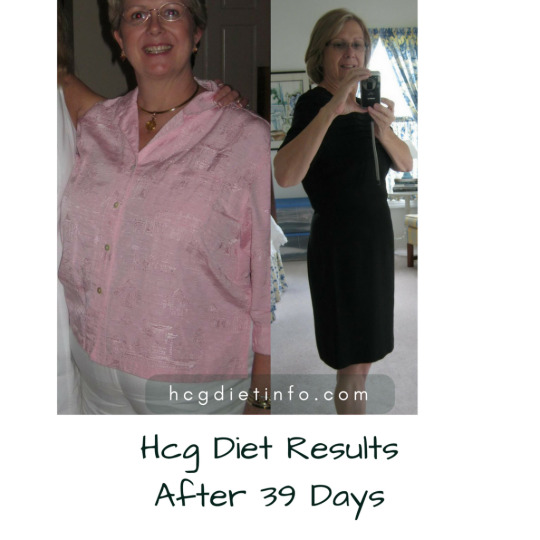
Carissa's Hcg weight loss results: 100 pounds lost in 6 months (Note, this is above average progress.)
https://youtu.be/i86vno8xbyo
A look at REAL Hcg Diet Results
The Hcg diet combines medical hormone therapy using Human Chorionic Gonadotropin, otherwise known as hCG, with a whole food diet of very specific foods for rapid weight loss results.
Those calories come from a very select list of approved healthy foods while avoiding processed foods and sugar.
Over a period of 3 to 6 weeks, the average loss results are approximately .5 pounds or more per day. Additionally, the amount of actual fat mass lost, is quite impressive:
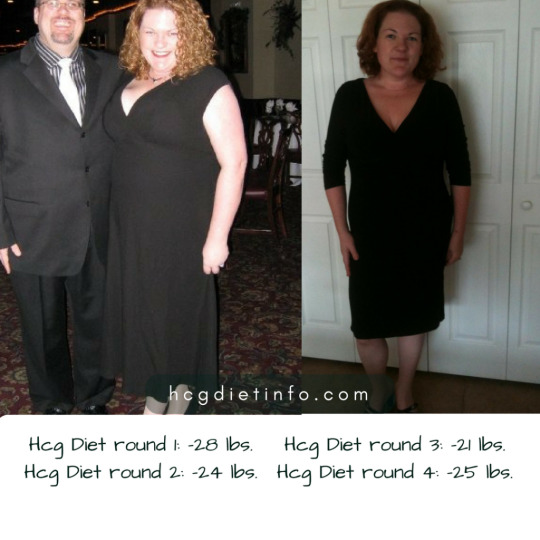
Human chorionic gonadotropin, is a natural hormone that is naturally elevated during pregnancy. Getting it into the body can be achieved in three main ways:
Hcg Diet injections results
The most common, and most effective treatment is to use prescription Hcg hormone injections. This is the option that nearly all doctors and physicians advise to patients wanting to follow the correct protocol.
They believe this results in more weight loss and fewer challenges since the hormone is injected directly into the bloodstream.
Hcg Diet drops results
There are 2 types of REAL Hcg diet drops, not to be confused with "hormone free diet drops" which contain no actual hCG ingredient. These include both prescription and homeopathic. Prescription hCG is largely found to be successful.
Homeopathic drops also offers countless success stories, although the FDA loudly claims this, (nor any homeopathic medical treatment, is legitimate.)
While I have not personally used homeopathic drops, (I have opted for prescription hCG through these reliable sources) I cannot argue with the countless success stories and impressive results I have seen in the forums.
For those who decide to follow this approach, please do your research and never follow the protocol with hormone free hCG of any kind.
The homoeopathic drops are designed to be taken orally, with the user placing a few drops under the tongue and holding it there for a few seconds.
This is intended to be done at least half an hour before eating for the full effect to occur.
It is suggested that the Hcg drops aren’t quite as effective as the Hcg injections, but many successful dieters have achieved their goals by using them.
Hcg Diet pills and pellets results
Taking Hcg pills and pellets is the newest option for achieving Hcg weight loss results, but has become a popular alternative for those who are not fond of injections.
This is the newest idea on the market and is believed to offer similar results to Hcg drops.
This video is courtesy of "StephsUniverse" - Thank you Steph! Spoiler alert: The Before and After pictures at the end, will SHOCK YOU!
https://youtu.be/PM_Hvds6E74
The best results:
I have seen the best results with prescription hCG injections, followed by prescription hCG of other forms and homeopathic hCG after this.
For those who have mistakenly purchased fake hCG (hcg activators, and other hormone free hCG products) may experience weight loss results, but almost always gain the weight back and then more.
In addition, they experience a number of challenges that come from not having enough hormone in their bodies to handle the VLCD of 500 calories (or up to 1600 calories depending on the version of the protocol you are following.)
If you can handle the commitment and inconvenience of getting daily shots, the Hcg injections are commonly agreed to be the best option of the three.
Ultimately, however, it comes down to personal choice.
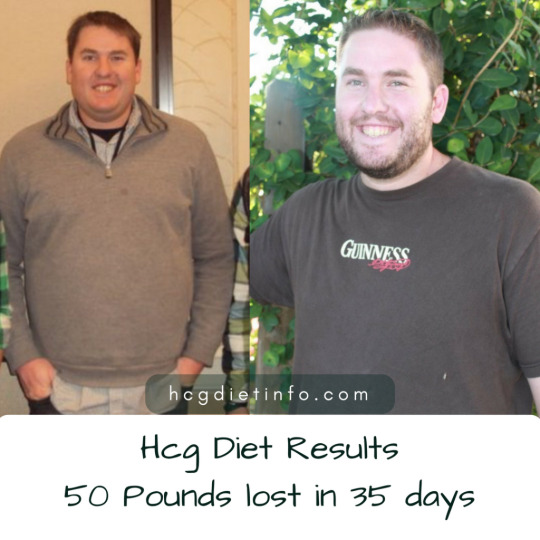
Hcg Weight Loss Results: What to Expect
For those who opt to follow the original protocol by Dr. Simeons, dropping down from your normal calorie intake to a strict diet of 500 calories, is a drastic change.
It also promises equally dramatic results and there are many elements that could impact the speed of weight loss;
- Starting weight: It’s naturally easier for a 300 lb person to lose 10 lbs in a few days than it is for a 150 lb person.
- Current calorie count: cutting to 500 calories from a 4,000 calorie intake will impact the body differently to dropping from 2,000 calorie one.
- Genes: Current metabolism rates and other factors will also impact the speed in which the pounds start to fall. Although, I have seen plenty of people with stubborn sluggish metabolisms, shed dress sizes at an impressive rate on the diet.
- Lifestyle: The amount of calories naturally burned during your daily activities can have a big impact too. However, rigorous exercise is ill-advised during
- Phase 2 (weight loss phase) due to the lack of food intake and energy.
As previously mentioned, the method used to take your hCG hormone, may have an influence on the outcome. However, anyone that follows the diet as planned can see life-changing results, even where other crash diets and fads have failed.
While there are no set parameters, most success stories report steady weight loss of between .5 to 1 pound for each day in Phase 2, with most weight loss occurring in the first 2 weeks, and slower loss results thereafter.
Do the Results Last?
The entire protocol is designed for lasting results. Specifically, phase 2 is followed by a 3 week period known as the transition phase, or Phase 3.
This stage is designed to carefully increase calories and introduce new foods that were not previously on the allowed foods list.
The reason for this, is to avoid falling into old eating habits and identifying trigger foods that could potentially cause weight gain.
With a conscious approach to eating and healthy living, there is no reason for future weight gain after the Hcg weight loss plan.
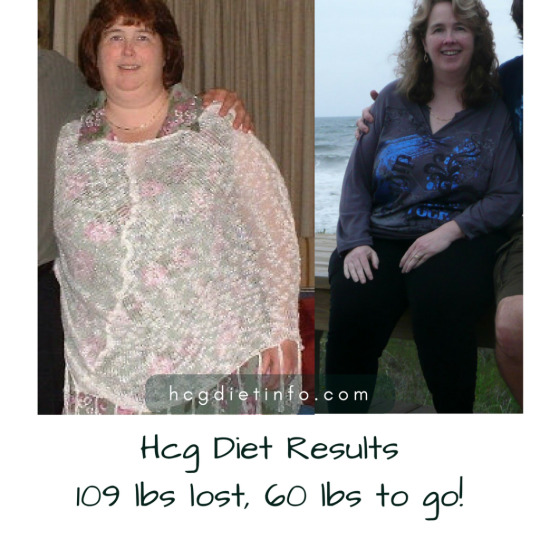
Why the Hcg Diet works
As Dr. Simeons discovered... in pregnancy, the Hcg hormone provides the growing fetus with nutrition even when the mother cannot eat or suffers from malnutrition.
According to Dr. Sharon Emma (you may have seen her on Dr. Oz) the hormone also stimulates the muscle follicles to maintain muscle mass and require the metabolism to continue running efficiently (compared to traditional calorie restriction where the body immediately goes into starvation mode.)
This forces the body to continue to run efficiently, burning the body’s stored fat for nutrition and energy, while also acting as a catalyst for other hormones.
The idea of combining increased Hcg levels and low calorie eating, encourages the body to convert fat to energy throughout the weight loss phase, resulting in rapid weight loss.
Many dieters on the Hcg plan report suppressed appetites as well.
According to Dr. Rao at Diet Doc, this is also a benefit of the Hcg hormone, where the appetite is naturally suppressed as long as the patient is taking the correct dosage.
Safe Weight Loss Results?
Not only does this underline why the Hcg diet works for weight loss in general but, crucially, highlights why it’s a safe and effective solution with no known side effects.
By using the fat as energy, the user can maintain their muscle weight, which gives the diet a massive advantage over many of its contemporaries.
It’s still important to see a physician before starting any diet to check that your body is capable of handling this dramatic change for the next 3-6 weeks.
Generally speaking, though, Hcg diet plans can be considered safe thanks to the use of natural hormones and the concept of targeting fat alone.
Results for Women vs. Men
The Hcg diet is considered suitable for both men and women, with studies showing that men can often lose weight at an even faster rate due to some of those factors mentioned above.
Hcg Diet results for men: Men almost always lose significantly more than women while in Phase 2. The most I have seen a man lose in 1 long round (approximately 40 days) was 60 pounds, and this was quite an extraordinary transformation.
His cholesterol was lowered, his blood pressure was lowered and his face looked like he had lost a decade in age. Needless to say, he was quite satisfied with his results.
Average results for women on the Hcg Diet, tend to vary. Those with a significant amount of weight to lose (for example, over 100 pounds) tend to lose much faster.
Those with only a small amount of weight to lose (30 pounds for example) may only lose 15 to 20 pounds during a single round.
My personal results from my last Hcg diet round: I lost 26 pounds of post baby weight, in 30 days. The photo at the top of this page was my before and after for that month.
The final word
When followed correctly, the Hcg diet produces fast results and significant levels of weight loss.
Better still, it’s fat loss rather than a combination of fat and muscle. As long as you have the right motivation and realistic expectations, it could be the life-changing plan you’ve been after.
Related articles:
Hcg Diet Reviews and Testimonials
Hcg Diet Success Stories with Before and After Pictures
Jen's Hcg Diet Journey: A 90 lbs success story
Read the full article
#1monthhcgdietweightloss#1monthhcgweightloss#averagehcgdietweightloss#averagehcgweightloss#averageweightlossresults#beforeandafterhcg#hcgbeforeandafter#hcgdietresults#hcgdietresultsformen#hcgdietresultsforwomen#hcgdietweightloss#hcginjectionresults#hcgresults#hcgweightlossbydays#hcgweightlossresults#resultsofhcgdiet
0 notes
Text
Intermittent Fasting and the Hcg Diet
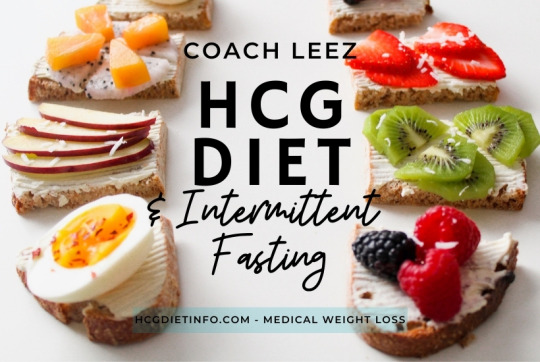
Intermittent fasting is becoming quite popular as a weight control tactic. It involves narrowing your eating "window" to 8 or fewer hours a day. Many have reported success at weight control with this tactic.
Interesting enough, intermittent fasting is built into Phase 2 of the Hcg diet, if you follow the menu pattern of 2 meals a day, lunch and dinner. It may not be a significant factor, as one can split up the two meals throughout the day without slowing the weight loss, but it is worth noting that it is built into the instructions of the weight loss phase, even if coincidentally.
When it comes to Phase 3 of the protocol, for stabilization and preparing for maintenance, it could greatly hinder results. HCG is a hormonal protocol, and intermittent fasting can have some negative hormonal effects. For those considering combining IF with your stabilization 21 days of P3, here is why I think it would be better to wait until P4 to give this a try.
The goal of P3 is to stabilize at your ending weight on P2 of the HCG diet. In order to do that, you have to eat the right kinds of foods (good oils, all proteins, non-starchy veggies and some fruit) and you have to eat enough of them. After P2, most people's capacity is small, and many struggle to get enough food in, especially the first few days. Intermittent fasting rules make that even harder.
The idea behind intermittent fasting is that having less time to eat will restrict your food intake. That is where the problem likes. You do not want to be cutting back on food intake in P3. In fact, you want to do just the opposite.
Why Intermittent Fasting Won't Work with P3:
At the end of P2, your metabolism is running at a higher more efficient level than previous to the diet. Your furnace is demanding fuel. You want to answer those demands so that the furnace keeps burning at a high rate.
If that can be accomplished, you will go on being able to eat more calories than you did before without gaining weight. Your metabolism has been reset, but you can slow it down again by under-eating in P3, or ignoring hunger and waiting too long to eat.
You need to get in touch with your hunger and satisfaction signals so that you eat enough and often enough to keep that revved up metabolism burning. You are learning how to fuel your body during P3. Paradoxically, the biggest issue with weight gain in P3 is failing to eat enough.
This is because the fear of regain is often very strong. But that fear must be overcome. You can trust the process. People are often amazed at how much they can eat during P3 and still stay in their 2 pound window.
Dr. Simeons said that in P3, eat whatever you like as long as you avoid starch and sugar. You have been given a great gift through the elimination diet aspect of P2---cravings will be gone. This gives you a rare opportunity to learn your hunger and satisfaction signals without cravings confusing the landscape. You need to learn how to eat enough, and to eat when hungry, not famished, as waiting too long almost ensures you will overeat.
P3 is a golden opportunity to shift your food relationship to a healthy fuel-based focus where you recognize and address your hunger in time, and appropriately. For more information on how to recognize your hunger/satisfaction signals, please see this article: How to Know When You Are Hungry.
Delaying eating until later in the day interferes with your hunger signals. Every hour after waking that you delay eating, slows down your metabolism. This is counter productive to your P3 goals.
To keep your metabolism humming in P3, try to get some calories in you within an hour of awakening. It doesn't have to be a lot, but it needs to be nourishing. Something with some protein and a little fat.
It could be something like coffee with collagen and MCT oil. (Froth it with a little sunflower lecithin---it gets very creamy), a small protein shake, or if you can handle solids-- some full fat cottage cheese or greek yogurt and berries, or a couple strips of bacon and some avocado.
This little calorie boost early in the day wakes up your digestive system and you are off and running.
There will be plenty of time to experiment with intermittent fasting once you have completed your 21 days of P3. So relax and enjoy all the freedom of variety and bounty encouraged in P3 knowing that it works, and will set you up for success in P4 (maintenance).
Read the full article
#fastingtips#hcgdiet#hcgdietandfasting#hcgdietandintermittentfasting#hcgdietcoach#hcgdietcoaching#hcgdieteating#hcgdieteatingplan#hcgdietfoods#hcgdietinjections#hcgdietmaintenance#hcgdietp3#hcgdietphase2#hCGDietphase3#hcgdietplan#hcgdietprotocol#HCGDietProtocols#hcgdietshots#hcgdietstabilization#hcgdietweightloss#hcgweightlosscoach#intermittentfasting#intermittentfastingandhcgdiet#medicalweightloss#medicalweightlossprotocol
0 notes
Text
Intermittent Fasting and the Hcg Diet
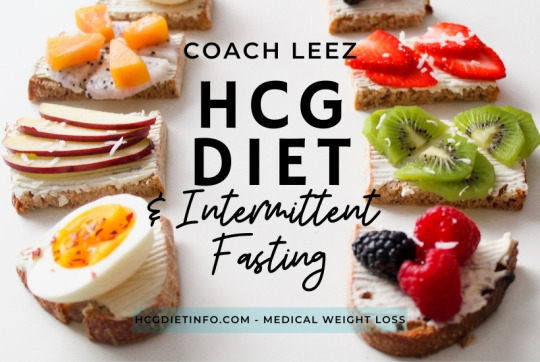
Intermittent fasting is becoming quite popular as a weight control tactic. It involves narrowing your eating "window" to 8 or fewer hours a day. Many have reported success at weight control with this tactic.
Interesting enough, intermittent fasting is built into Phase 2 of the Hcg diet, if you follow the menu pattern of 2 meals a day, lunch and dinner. It may not be a significant factor, as one can split up the two meals throughout the day without slowing the weight loss, but it is worth noting that it is built into the instructions of the weight loss phase, even if coincidentally.
When it comes to Phase 3 of the protocol, for stabilization and preparing for maintenance, it could greatly hinder results. HCG is a hormonal protocol, and intermittent fasting can have some negative hormonal effects. For those considering combining IF with your stabilization 21 days of P3, here is why I think it would be better to wait until P4 to give this a try.
The goal of P3 is to stabilize at your ending weight on P2 of the HCG diet. In order to do that, you have to eat the right kinds of foods (good oils, all proteins, non-starchy veggies and some fruit) and you have to eat enough of them. After P2, most people's capacity is small, and many struggle to get enough food in, especially the first few days. Intermittent fasting rules make that even harder.
The idea behind intermittent fasting is that having less time to eat will restrict your food intake. That is where the problem likes. You do not want to be cutting back on food intake in P3. In fact, you want to do just the opposite.
Why Intermittent Fasting Won't Work with P3:
At the end of P2, your metabolism is running at a higher more efficient level than previous to the diet. Your furnace is demanding fuel. You want to answer those demands so that the furnace keeps burning at a high rate.
If that can be accomplished, you will go on being able to eat more calories than you did before without gaining weight. Your metabolism has been reset, but you can slow it down again by under-eating in P3, or ignoring hunger and waiting too long to eat.
You need to get in touch with your hunger and satisfaction signals so that you eat enough and often enough to keep that revved up metabolism burning. You are learning how to fuel your body during P3. Paradoxically, the biggest issue with weight gain in P3 is failing to eat enough.
This is because the fear of regain is often very strong. But that fear must be overcome. You can trust the process. People are often amazed at how much they can eat during P3 and still stay in their 2 pound window.
Dr. Simeons said that in P3, eat whatever you like as long as you avoid starch and sugar. You have been given a great gift through the elimination diet aspect of P2---cravings will be gone. This gives you a rare opportunity to learn your hunger and satisfaction signals without cravings confusing the landscape. You need to learn how to eat enough, and to eat when hungry, not famished, as waiting too long almost ensures you will overeat.
P3 is a golden opportunity to shift your food relationship to a healthy fuel-based focus where you recognize and address your hunger in time, and appropriately. For more information on how to recognize your hunger/satisfaction signals, please see this article: How to Know When You Are Hungry.
Delaying eating until later in the day interferes with your hunger signals. Every hour after waking that you delay eating, slows down your metabolism. This is counter productive to your P3 goals.
To keep your metabolism humming in P3, try to get some calories in you within an hour of awakening. It doesn't have to be a lot, but it needs to be nourishing. Something with some protein and a little fat.
It could be something like coffee with collagen and MCT oil. (Froth it with a little sunflower lecithin---it gets very creamy), a small protein shake, or if you can handle solids-- some full fat cottage cheese or greek yogurt and berries, or a couple strips of bacon and some avocado.
This little calorie boost early in the day wakes up your digestive system and you are off and running.
There will be plenty of time to experiment with intermittent fasting once you have completed your 21 days of P3. So relax and enjoy all the freedom of variety and bounty encouraged in P3 knowing that it works, and will set you up for success in P4 (maintenance).
Read the full article
#fastingtips#hcgdiet#hcgdietandfasting#hcgdietandintermittentfasting#hcgdietcoach#hcgdietcoaching#hcgdieteating#hcgdieteatingplan#hcgdietfoods#hcgdietinjections#hcgdietmaintenance#hcgdietp3#hcgdietphase2#hCGDietphase3#hcgdietplan#hcgdietprotocol#HCGDietProtocols#hcgdietshots#hcgdietstabilization#hcgdietweightloss#hcgweightlosscoach#intermittentfasting#intermittentfastingandhcgdiet#medicalweightloss#medicalweightlossprotocol
0 notes